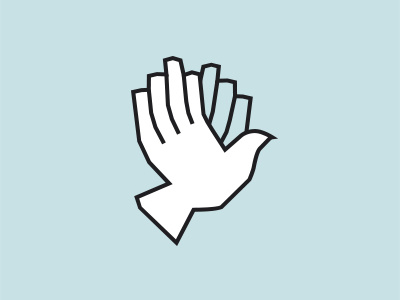
The Middle East is often portrayed as an outlier when it comes to human rights, but rights are an important part of the political, diplomatic, and social fabric of the region. Popular movements for independence, equality for women, and protections for workers have deep roots in the region. When the United Nations began to enshrine these values into law after World War II, representatives from the Middle East were at the centre of the debates. In the following two decades, human rights largely played out in the international political realm. Middle Eastern governments contributed to diplomatic efforts to shape emerging treaties and norms and often mobilized human rights rhetoric against colonialism.
In the 1970s, however, the locus of human rights shifted to non-governmental organisations (NGOs) that used human rights to pressure their own governments for change. Activists created organisations promoting the rights of prisoners, leftists, Islamists, dissidents, women, and the poor. Human rights became more threatening to Middle Eastern regimes that were overwhelmingly undemocratic. States had little tolerance for institutions that could challenge them and often responded violently. Even though widespread violations continue, human rights have become an important framework across the region. Most states now address human rights concerns in response to domestic and international pressure. Rights have increasingly become the language of popular protest and were one of several ways that people articulated grievances before and during the uprisings in several Arab countries in 2011.
Treaties in International and Domestic Politics
Middle Eastern diplomats played key roles in the codification of human rights. Charles Malik, a Lebanese diplomat, was one of the architects of the Universal Declaration of Human Rights (UDHR), the foundational document of human rights law. Along with Peng-chun Chang of China, Malik was considered the intellectual force behind the document. The UDHR established baseline protections for individual rights. It was adopted as a resolution of the UN General Assembly on December 10, 1948 with support from 48 countries. Eight countries abstained, including the Soviet bloc, Saudi Arabia, and South Africa. At the time of its signing, many current-day countries were not represented because they were occupied by foreign powers, presenting an obvious challenge to the idea that the values enshrined in the UDHR are universal. Since 1948, most states, including those that are former colonies, have signed treaties agreeing to implement the Declaration.
Middle Eastern participation in drafting and advocating for early treaties went beyond Malik. Arab and Asian representatives to the UN advocated for both self-determination and human rights as part of their struggle against colonialism. For many of these smaller states, human rights and anti-colonialism were mutually reinforcing concepts. With strong support from Egypt and other delegations from the Middle East and Southeast Asia, and opposition from Great Britain and other imperial powers, Article 2 of the UDHR contains a strong statement that the rights enshrined therein apply to individuals living under colonial rule: ‘Furthermore, no distinction shall be made on the basis of the political, jurisdictional or international status of the country or territory to which a person belongs, whether it be independent, trust, non-self-governing or under any other limitation of sovereignty’.
…
The Age of NGOs
The contemporary era of human rights organising in the Middle East, marked by its reliance on international treaty law and claims of universal standards, began in this milieu in the 1970s and accelerated into the 1980s and 1990s. Lawyers, political partisans, and intellectuals across the region created new organisations devoted to human rights advocacy. While many of these NGOs expressed support for the Palestinian struggle or other issues abroad, their primary focus was domestic reform. Whether their audience was domestic, international, or both, their goal was to generate change within their own governments and societies. Many early activists were motivated by personal experiences of repression, and international law gave them a common language with which to challenge state action.
The earliest human rights NGOs emerged in countries with histories of contentious nationalist politics and strong communal institutions, such as political parties and labour unions. Activists in Tunisia, Morocco, Palestine, and Egypt were among the first to form national NGOs focused broadly on human rights. The Tunisian League for Human Rights (LTDH) was founded in 1976 and officially registered with the government the following year. LTDH (like many North African NGOs, it is known by the acronym for its French name) immediately began working on prisoners’ rights and advocating for the right of association, the right to a fair trial, and press freedom. These civil and political rights were key to carving out space for political opposition, which was marginalised and then outright banned as Habib Bourguiba (1957–1987), nationalist leader turned president, consolidated power. By the early 1980s, LTDH had thousands of members and local branches around the country. LTDH cultivated a reputation for independence, both from the state and from various political groups. Its early leadership was politically prominent, providing some protection from state intervention. Like many secular human rights groups, LTDH faced the tricky question of if and how to advocate for the rights of Islamists, who were often seen as political enemies of human rights but were also persecuted by the state. LTDH eventually took prominent stances in favour of releasing Islamist political prisoners.
Written by Catherine Baylin Duryea
Image: Stephan Peters
Publication date: May 20 2019
The hear of the Middle East civil society is a click away @ NGO Portal
Find civil society employment opportunities @ NGO Jobs
You can always give Free Donations daily through our unique Click-to-Help platform without cash, credit card or registration!




Copyright © 2024 The Olive Tree SAL, all rights reserved. Terms of Use | Privacy Policy